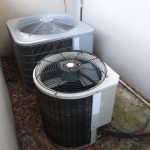The Olympics foster a spirit of global connectedness. And just as the athletes train to perform at maximum efficiency, making your home perform efficiently takes planning and careful execution to achieve the best results.
Technology has enhanced home efficiency, but it also seems to leave even less time for household chores than before. Dutch Company Brabantia promotes household organization with style and multifunctional items and storage. A coordinated system of this nature is both beneficial and essential in this high-tech, on-the-go society. With the right tools, any task can be completed quicker and with less effort.
In Australia, household efficiency based on technology was slow to evolve. During the 1980s, home appliances remained similar to their 1950s counterparts. The focus remained on traditional functions, with appliances as a showpiece for success. But things started to change on the efficiency front. Appliances were responsible for increased emissions so, “The government introduced a product labeling program, whereby the energy efficiency of an appliance was clearly displayed. This encouraged consumers to buy the most environmentally friendly option available.”
American home efficiency is a hot topic. How can a busy family balance two incomes, a busy schedule and the demands of a home’s upkeep? The answer lies in efficiency over a need for perfection, as was common in decades past. Delegation, minimization and self-sufficiency are the cornerstones of modern households. Karen Caitlin writes, “What I’ve seen in myself and my friends is that we’ve mastered the ability to shrink our household duties down to the bare minimum.” This is not something to be ashamed of, but an evolution of time and technology. Time is a precious commodity, so it should be maximized and enjoyed, not wasted.
With mounting time constraints, an expanding population and environmental concerns, efficient energy use has become a global concern. The islands of Japan are some of the densest populated areas in the world, but according to recent research, Japan is ranked as the No. 1 energy-efficient country in the world. According to an article from Forbes.com, this is because in order to maintain economic growth and stability, “the Japanese have turned to energy efficiency to keep down the fuel bills, and also to control its carbon dioxide emissions.” Other countries are following Japan’s example. Energy concerns are growing, so efficiency is becoming a necessity around the world.
Methods for increasing energy efficiency vary from country to country. Labels are common, as are energy caps and increased taxation. These methods are implemented with varying degrees of success, but as the global consciousness grows, so too will the need for energy efficiency in the home.
Post Author: andyc.



